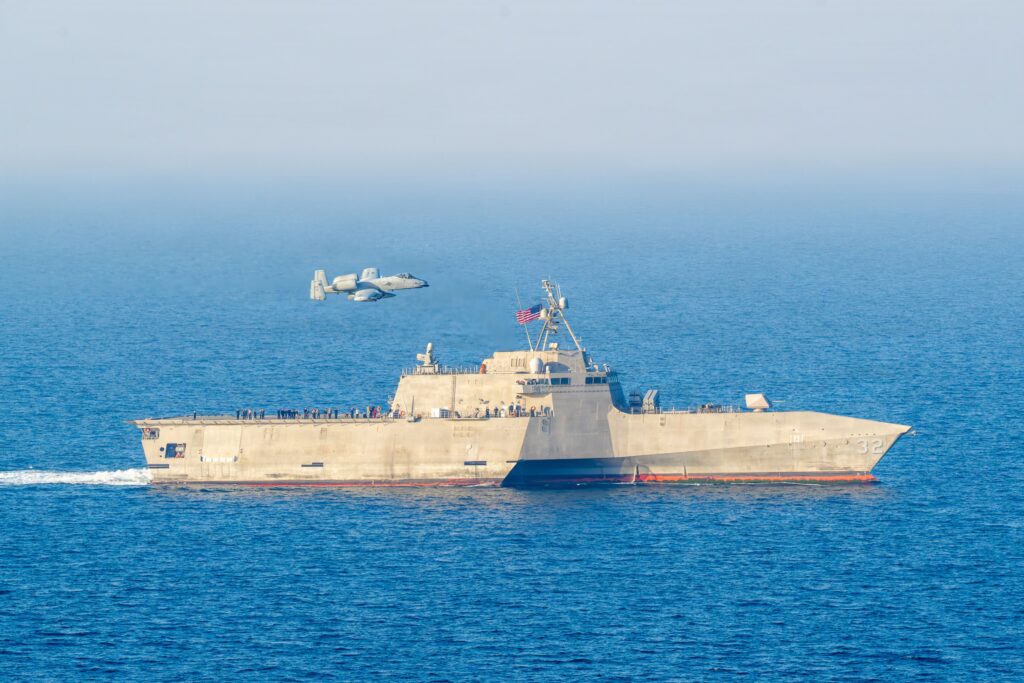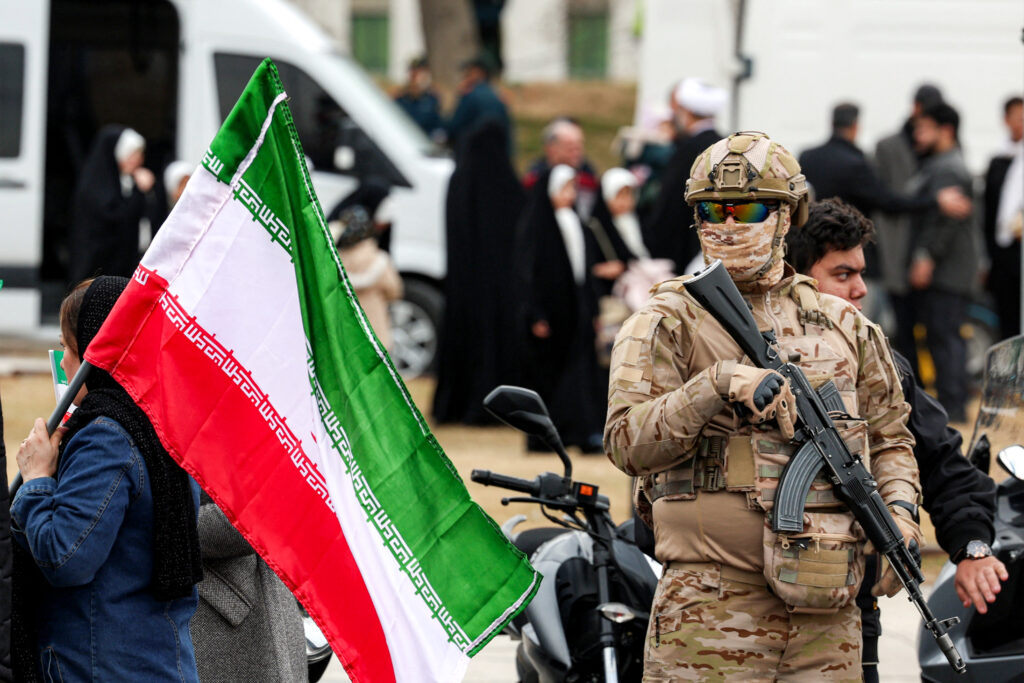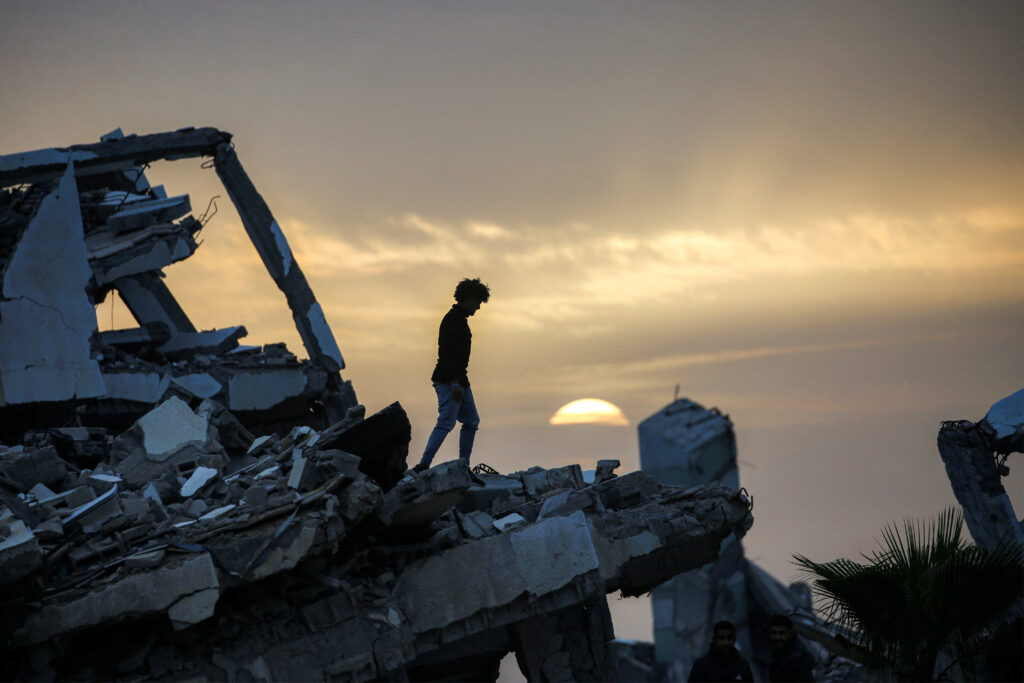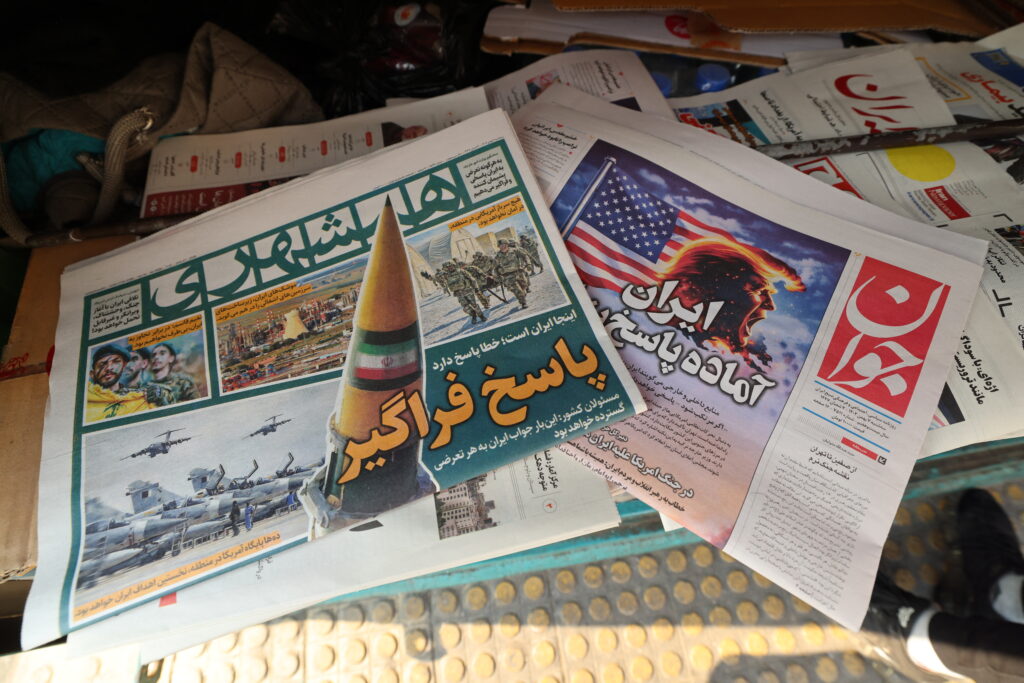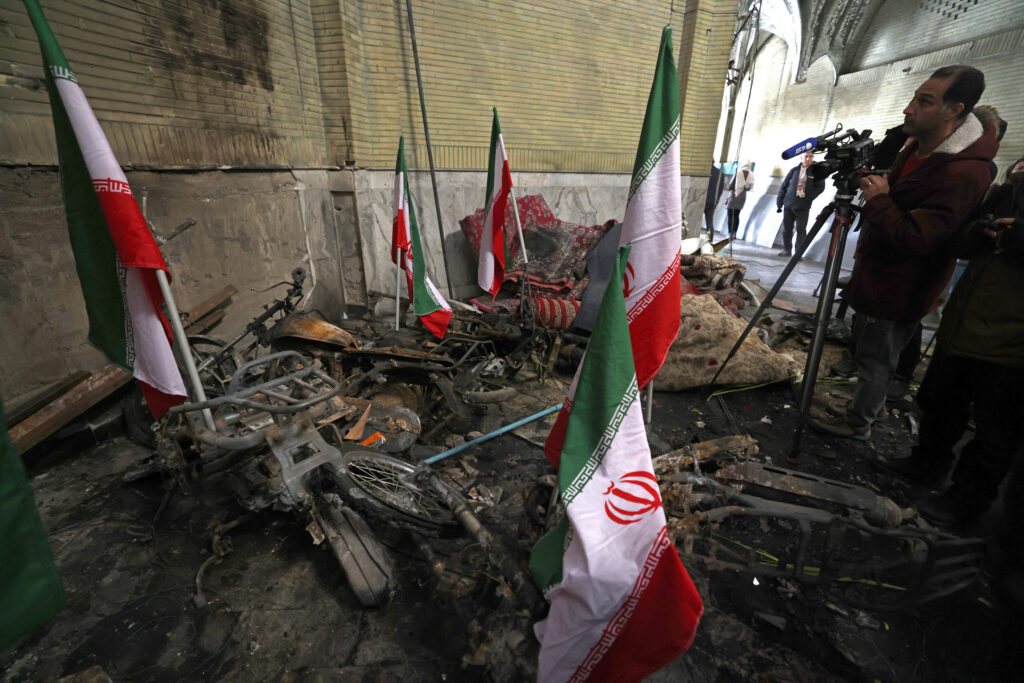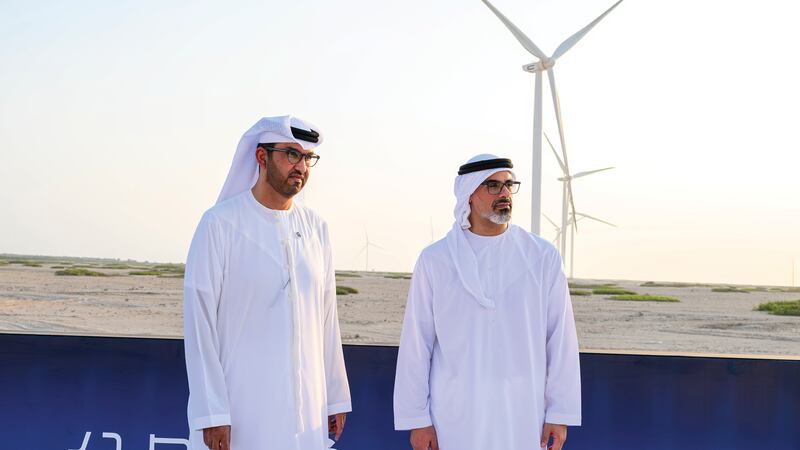Can Indonesia Be a New, and More Effective, Champion for Palestinians?
- Muhammad Zulfikar Rakhmat,
- -
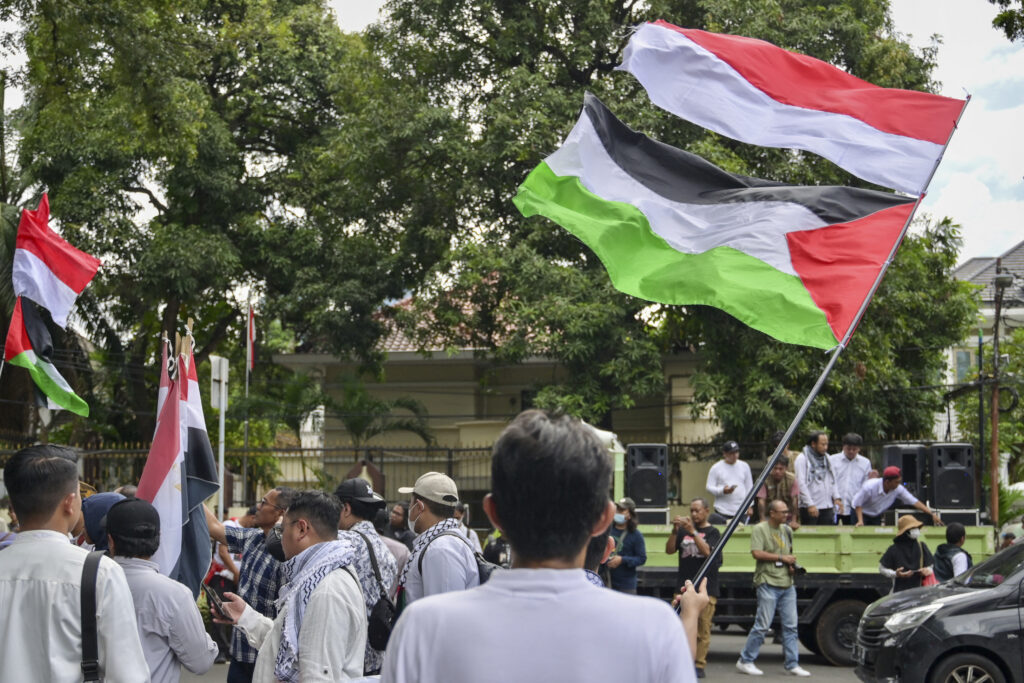
The Israel-Hamas ceasefire has collapsed, triggering renewed violence and worsening the humanitarian crisis in Gaza. Arab states, which had sought a way forward for a lasting peace in the wake of the truce, have remained largely silent as hostilities resumed, highlighting their ineffectual efforts. Their disengagement has left a vacuum in global advocacy for Palestine — one that Indonesia, the world’s most populous Muslim-majority nation, has both the moral imperative, and strategic incentives, to help fill.
For decades, Indonesia has positioned itself as a steadfast supporter of Palestinian rights, but its approach — largely limited to diplomatic condemnations and humanitarian aid — has yielded limited results. As global power dynamics shift and the Gulf states disengage from the Palestinian cause, Indonesia must reconsider how it can best contribute. With its growing international influence, Indonesia has a unique opportunity to revitalise global support for Palestine in a meaningful and strategic way — one that aligns with its aspirations to lead the Muslim world and solidify its status as a middle power capable of mediating in major conflicts, as seen in its interest in the Afghanistan issue alongside Qatar.
Indonesia’s Strategic Motivations for Supporting Palestine
Indonesia’s incentive to take a more proactive role in advocating for Palestine is not solely based on ideological solidarity; it is also deeply rooted in its broader geopolitical and diplomatic ambitions.
The country has long sought to establish itself as a leader in the Muslim world. While Saudi Arabia and Turkey have historically dominated Islamic leadership, Jakarta’s consistent and principled stance on the Palestinian issue provides it with an opportunity to strengthen its credibility among Muslim-majority nations. Taking the lead on Palestine would elevate Indonesia’s global standing within the Organization of Islamic Cooperation (OIC), and allow it to exert greater influence on issues that matter to the broader Muslim community.
Indonesia is also actively working to cement its reputation as a middle power with the ability to mediate in global conflicts. Its diplomatic efforts in Afghanistan, as well as its involvement in broader peacekeeping initiatives, demonstrate its desire to be seen as a neutral and credible negotiator. By taking a more prominent role in advocating for Palestine — through diplomatic, economic, and legal avenues — Jakarta can strengthen its claim to being a country capable of influencing major international disputes. This aligns with its broader foreign policy goals of enhancing its diplomatic leverage and playing a more active role in shaping global security discussions.
Perhaps crucially, Indonesia’s deeper involvement in the Palestinian cause will give it a fillip domestically. Public sentiment in the country has long been overwhelmingly pro-Palestinian, with strong grassroots support for action instead of mere rhetoric. By aligning its foreign policy with public expectations, Jakarta can maintain domestic stability while also reinforcing its national identity as a protector of Muslim interests on the global stage.
Leading Muslim Nations in Coordinated Diplomatic Efforts
With the Arab Gulf states largely moving away from actively championing the Palestinian cause, and a weakened and worried Egypt wary of offending the US — its top military aid benefactor — Indonesia can step in to fill the leadership vacuum. To do this, Jakarta should work to reinvigorate the Organization of Islamic Cooperation (OIC) and push for greater cohesion among Muslim-majority nations on the issue.
Rather than relying on blanket condemnations, Indonesia can spearhead an initiative that ties economic and political cooperation among Muslim nations to the protection of Palestinian rights. While past efforts have failed to translate into tangible outcomes, Indonesia’s relative neutrality and diplomatic flexibility allow it to serve as a mediator in ways that more politically entangled nations cannot. This could include conditional trade agreements, collective diplomatic lobbying, and coordinated foreign policy strategies aimed at increasing pressure on Israel through legal and economic means.
Additionally, Indonesia can work more closely with non-Arab Muslim-majority nations such as Turkey and Pakistan to create a coalition advocating for Palestinian sovereignty. While global Muslim solidarity for Palestine is widespread, the lack of coordinated governmental action remains a key issue. Indonesia’s role would be to translate this broad moral support into structured diplomatic initiatives that force greater accountability from international powers such as the US and the European Union. This would also strengthen Jakarta’s ambitions to be seen as a leader of the Muslim world, reinforcing its influence on global Islamic affairs.
Strengthening Palestinian Economic Resilience and Ethical Trade Policies
Indonesia can also contribute by strengthening the economic resilience of Palestinian communities. Instead of simply providing humanitarian aid, Jakarta should focus on sustainable development efforts in collaboration with global Islamic financial institutions and countries like Turkey and Qatar. This could involve investments in Palestinian-owned businesses, micro-finance initiatives, and educational programmes that empower Palestinians with skills to aid their moribund economy.
Additionally, Jakarta could promote ethical trade policies by ensuring that its imports and exports do not involve companies or individuals complicit in settlement expansion, which is illegal under international law. While direct economic sanctions may not be feasible, Jakarta can use its leadership role within Asean and broader Muslim networks to establish business guidelines that prioritise ethical investments and trade practices that align with international law. Strengthening economic ties in the Muslim world through ethical trade would further boost Indonesia’s credibility as a leader in shaping global Islamic policies.
Advancing Palestinian Legal Rights Through BRICS and Global Platforms
Beyond diplomatic statements, Indonesia must adopt a more proactive role in legal and political advocacy for Palestinian rights. This includes bolstering support for international legal efforts, such as war crimes cases brought before the International Criminal Court (ICC). Jakarta could leverage its growing influence in international forums to push for the enforcement of United Nations resolutions that uphold Palestinian sovereignty and hold perpetrators of human rights violations to account.
The UN has proven largely ineffective in advancing the Palestinian cause, but other groupings may offer alternatives. This is particularly true of organisations that bring together the countries of the Global South — which are generally much more sympathetic to the Palestinian cause. In this regard, BRICS, which includes major global players such as China, Russia, and India, stands out. Indonesia can use its membership in BRICS to push for resolutions, economic cooperation, and coordinated political pressure in support of Palestinian rights. By framing the Palestinian struggle not only as a humanitarian crisis but also as a matter of international law and justice, Jakarta can rally broader international support beyond traditional allies. While Western powers have acknowledged the illegality of occupation under international law, enforcement remains weak due to geopolitical and domestic constraints. Indonesia, as a Global South leader, can play a unique role by mobilising emerging economies and regional blocs to shift the balance of power in diplomatic and economic pressure against Israel.
Leveraging Digital Diplomacy and Global Grassroots Movements
Indonesia has one of the largest and most engaged social media populations in the world. This presents an opportunity for Jakarta to lead digital diplomacy efforts that amplify Palestinian voices and counter disinformation about the conflict. Through coordinated social media campaigns, Indonesia can mobilise civil society, engage younger generations, and build global momentum for Palestinian rights.
While public opinion in many countries is already sympathetic to Palestine, government policies often do not reflect this sentiment due to geopolitical and economic interests. Indonesia can work with international human rights organisations and social justice movements to shape narratives that drive tangible political and economic actions aimed at the pursuit of Palestinian sovereignty. Digital activism, when strategically employed, can influence global public opinion and put pressure on governments to take stronger stances on the conflict. In doing so, Indonesia can bolster its international reputation as a leader of Muslim voices and a champion of justice on the global stage.
A Time for Strategic Action
Indonesia has long stood in solidarity with Palestine, but solidarity alone is no longer enough. In a world where political alliances shift and major powers waver in their commitments, Indonesia has the potential to emerge as a new champion for the Palestinian cause, a role which will boost its own ambitions for a larger role on the Muslim, and world, stage.
Image Caption: Indonesians take part in a rally in front of the Egyptian Embassy in Jakarta on 4 March 2024, to protest against the closure of the Rafah crossing between Egypt and the Gaza Strip. Photo: AFP
About the Author
Muhammad Zulfikar Rakhmat, a researcher at Jakarta-based Center of Economic and Law Studies, is an MEI Research Affiliate.

